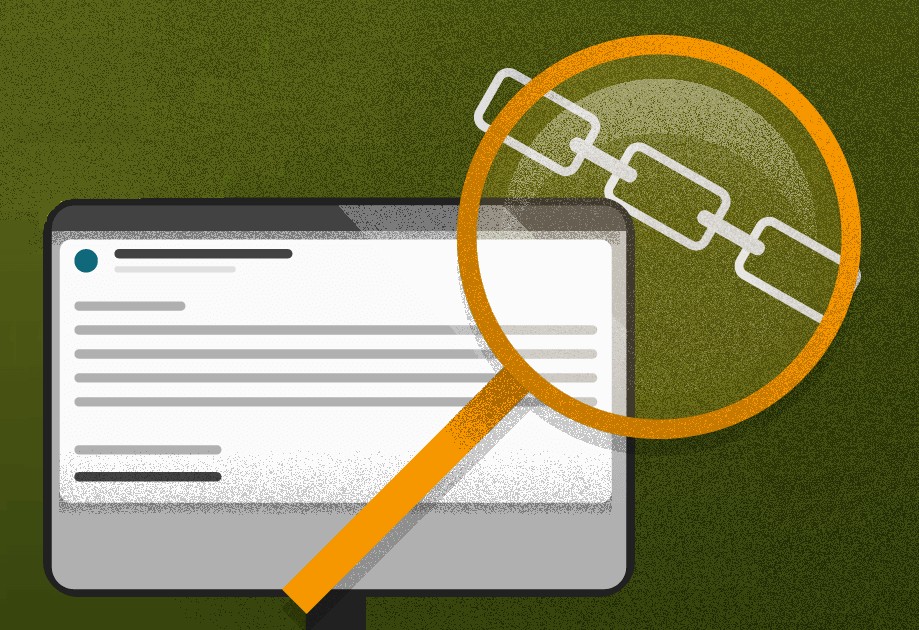Search Engine Optimization is one of the main strategies CMOs should devote their budget and time to. It’s an effective, simple, and cheap way of doing Digital Marketing.
You probably already know this and take it into account when planning the future. However, aren’t you too focused only on your website, profiles, and blog?
In this post, we want to show what off-page SEO is and why it matters. Let’s see why Google likes seeing your content in other contexts and how you can expand your keywords outside the company’s digital environment.
You’ll learn the following:
When a business starts an SEO strategy, it begins from the inside out at first.
It involves, for example, mapping keywords, restructuring information, elaborating meta descriptions and tags, and producing great content.
It usually works. Marketing teams that focus on SEO can see a relevant return in a matter of months, sometimes weeks.
But a lot of CMOs stop there. They never really try to leave the comfort of their websites and blogs, limiting where the brand can go in terms of recognition.
In this context, off-page SEO is the next step. It’s an effort to improve your ranking in search engines by taking advantage of external sources.
Some examples are:
- brand mentions in other websites and social media;
- guest posts;
- reviews;
- comments referring to your website;
- discussion about your brand in forums;
- off-page content;
- Q&As that leads to your page.
The main goal of all these interactions between external sources and your website is getting backlinks from them.
A backlink is any link in a webpage outside your digital environment that directs the user to your content.
This is one of the most important things Google looks for when determining the relevance of a website and putting it higher among the top results.
The logic behind this is simple: if a lot of trustworthy sources are talking about you, it means you probably deserve trust too.
So off-page SEO goes out there and turns the right eyes towards your site. This is a strategy that not only improves ranking but also builds some important connections along the way.
An important point to notice is that you shouldn’t choose between on-page and off-page SEO. They are both crucial and should be executed together, complementing each other.
But it doesn’t mean you don’t need to differentiate them in your project.
Distinct strategies need distinct approaches.
In this sense, we can put it like that: on-page SEO is about voice, structure, and owning your schedule.
You need to plan the right topics to cover the right keywords. Also, you need to use social media to expand your reach, as well as design a funnel to guide new leads towards conversion.
While on-page is more about reaching people, off-page SEO is made to bring them closer.
This strategy is more focused on networking and making other businesses, influencers, and users refer to you when they are talking about keywords that matter.
Yes, off-page SEO is social at its core. It’s a plan to be recognized and valued. When you get to this point, external sources begin to work as new promoters of your brand. And Google loves to see this.
The importance of any SEO strategy is pretty clear: you want your website to be better positioned on search engines.
But there are some ways of doing that, and each one brings a new angle to the way your content relates to results.
In the case of off-page SEO, the benefits go beyond simple positioning. Let’s explore these points!
Ranking faster and better in more keywords
Of course, you are striving for a better ranking when doing any SEO. But this can be a painful, long game if you don’t focus on your strategy. When using off-page alongside your on-page efforts, you create many shortcuts.
If you get a lot of referrals, Google starts noticing not only the keywords you are aiming at but also other relevant ones present in the content linking to you.
That way, you rank your website faster in more searches. It takes some work at first, but it will become a lot easier with time.
Amplifying the influence of your page
Organic traffic is always tied to relevance. If your content matters, Google will promote it. However, even while this isn’t happening, people will be interested.
An off-page SEO can create a series of new entry points to your website, outside search engines. With more backlinks, you are using the halo effect from other brands to attract new leads.
The thinking process behind this is: they like that content, and you are linked there, so maybe they will like you too.
Brand recognition
Even if people aren’t visiting your page, doing this kind of SEO has a powerful effect on sticking your name in their minds.
Whenever there’s a discussion, a post, or a topic that involves your brand, every person who is there will be in contact with it, even if indirectly.
Getting known in relevant conversations goes way beyond the visits to your blog.
Brand authority
With off-page SEO, leads will notice your brand more and probably do that in the perfect context for you: when you are referred by other people they trust.
Building authority is the key to get better positions on Google. It means what you say is worth listening to.
That way, the visibility is not just in numbers. The audience comes to you ready to engage, with a more positive view about your brand, thinking something like: “these are the ones that will solve my problem”.
With all the main points of this strategy discussed, it’s time to start practicing. There isn’t something like a perfect off-page SEO plan. Each marketer will find the right course that makes sense to them.
But what we can do is to show you the steps you need to start. Here are the main points you should have on your radar from now on.
Set the right goals
Planning is a fundamental part of any CMO’s routine. But how do you know what strategy will work in your case?
To find the right goals for your business, you need data, especially about your buyer persona. It includes things like:
- what pages they use to get information;
- in what context they are more prone to click an external link;
- how they relate to brands on social media;
- what kind of discussions they participate in online;
- what channels they use for communications.
With all this knowledge, you have a target to aim at. It will make your efforts more effective, and it will bring better results.
Begin from link building
Link building is the main thing to work for when doing SEO off-page. It creates new paths leading to your content and makes Google have another look at your relevance.
You do this in three ways:
- with time and a lot of work, your brand gets the authority needed to start receiving natural links from other sources;
- with networking and proximity to other businesses, you can manually build links on outside content that mutually help both brands.
Exchange guest posts
Guest posts are the easiest way to make link-building on other pages. It’s a well-known practice, which brings great results when you choose the right partners.
In this strategy, you create content that will be displayed on another brand’s blog or social media. The goal here is to focus on those that share similar buyer personas with you.
You create a piece of content tailored for them, but linking to your blog.
The main idea here is to write about something that you’re an authority on and also correlates to the service the other blog offer.
That way, both sides win. They have more content, which they didn’t need to produce, and you have a new reach within their user base — clients, visitors, and subscribers.
All these new potential leads already know and trust the content they follow, so they will trust what you are saying too.
Some backlinks, some context, and you have highly engaging material.
Use social media
Social media is another key factor when doing SEO off-page. Have a frequent and relevant presence online, interacting with your audience in meaningful and non-invasive ways.
You can also use rewards and encourage customers to do some link-building for your brand — with reviews and recommendations, for example, sharing their experiences overall.
Invest in influencers
Another great use of social media for off-page SEO is contacting digital influencers to talk about your products.
This kind of strategy should be disclaimed as paid content, but this is not a bad thing. Endorsement generates a lot of engagement, and Google will see it as a positive sign of your brand’s worth.
However, you must bear in mind you have to choose the right partners. After all, numbers alone don’t matter much if you are aiming at conversions.
What you need to look for in digital influencers is shared values, overlapping audiences, and a voice that matches your brand persona. What matters the most is how eager the public is to interact with the content.
And talking about SEO, another good tip is to create a whole plan around that partnership. This involves not only a video showing a product but also multimedia activations that generate even more backlinks.
The goal is to boost visibility at first, as well as create some long-tail content. After all, it is what will help your website reach the top positions on search results.
Be relevant in comments and discussions
Auto-promoting a brand in comment sections and discussions is a polemic subject. Some people see it as bad faith, but it’s a great strategy when done right.
You can go on popular channels to talk about your brand but always do it with context. Don’t be invasive or go there just to promote.
Try to always add value to the discussion before sending a link or talking about yourself.
Measure everything
Our last tip is often present in any content about marketing strategies because it’s very important. After all, it’s really hard to know if you are doing off-page SEO right if you don’t measure it.
Along with the positions you are climbing in search engines, you need to monitor the number of backlinks and especially where they are coming from.
When you cross-reference this data with leads and conversions, your team has a map that shows what channels will give you a better ROI for Content Marketing.
And this is crucial for the future. Finding the right tools and plans enables a business to do Digital Marketing the right way: with a lot of optimization and the most available budget.
SEO is all about that. All the effort you have to make at first will become more simple with time. All the organic traffic you attain brings even more traffic — people follow people, and trust builds trust.
So how about going after that right now? If your website and your strategy are already optimized for better positions on Google, it’s time to go beyond that and expand your visibility by doing off-page SEO.
Want to improve your SEO strategy? Download now our complete guide to achieve the first result on Google pages!

![[WA] Ultimate Content Marketing Kit](https://rockcontent.com/wp-content/uploads/2022/08/Content-Marketing-Kit-750x200px.jpg)








